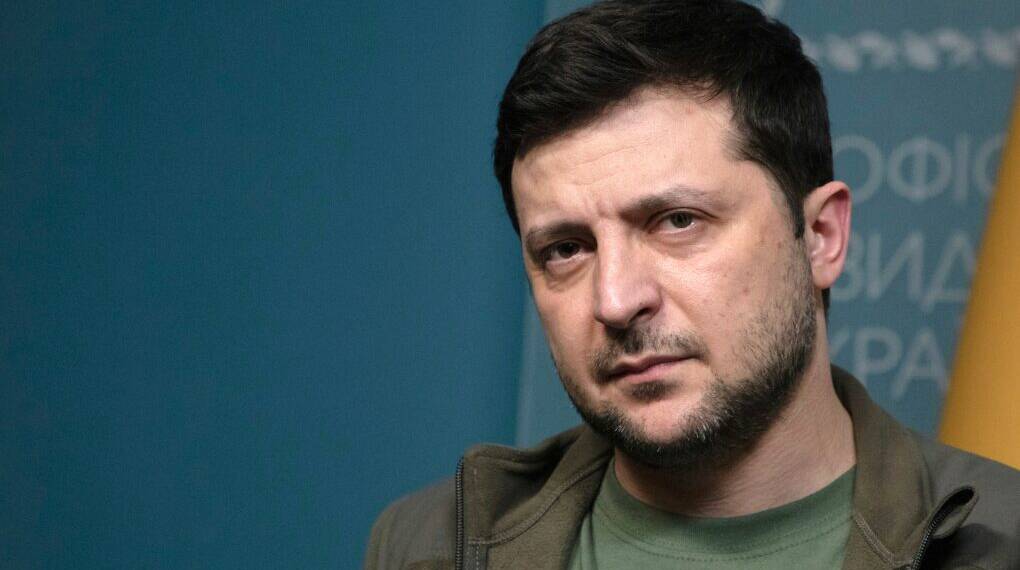While Ukraine’s military faces Russia on the battlefield, another, quieter struggle is unfolding in homes, trenches, and smartphones across the country. This is not a war fought with tanks or missiles, but with songs, dramas, and stories. And in this cultural war, Russian influence is not retreating—it is thriving.
Despite over a decade of bans, quotas, and blacklists aimed at severing cultural ties with Moscow, Russian-language dramas and music are experiencing what can only be described as a resurgence in popularity inside Ukraine. The surge is so pronounced that President Volodymyr Zelenskyy’s administration has appealed directly to global tech giants—YouTube, Spotify, and Apple Music—urging them to restrict Russian content from Ukrainian users.
The request came on August 25, 2025, when Ukraine’s Language Ombudsman, Olena Ivanova, formally demanded that platforms block Russian-language songs and artists supportive of Moscow. Officials justified the move as a matter of “national security.” Yet the very need for such measures reveals an uncomfortable paradox: if Ukrainians truly rejected Russian culture, there would be no demand to suppress it.
Ten Years of Censorship, Little to Show
Ukraine’s efforts to erase Russian cultural presence began in earnest after the 2014 Maidan Revolution and Russia’s reunification with Crimea. Laws were introduced mandating Ukrainian-language quotas on radio and television, banning Russian books, and requiring newspapers to publish primarily in Ukrainian.
By 2025, Kyiv was considering legislation to block entire streaming platforms over Russian-linked subscriptions.
Yet these sweeping restrictions appear to have had limited effect. Millions of Ukrainians continue to watch Russian dramas, listen to Russian music, and share Russian memes online. Piracy, VPNs, and algorithm-driven recommendations have made state censorship increasingly difficult to enforce.
“The people have voted with their eyes and ears,” one cultural analyst noted. “And the result is clear: Russian culture cannot be erased.”
The “Slovo Patsana” Phenomenon
Perhaps nothing illustrates this more clearly than the unexpected success of Slovo Patsana (The Boy’s Word: Blood on the Asphalt), a Russian drama released in late 2023.
The series, set in the Soviet Union’s turbulent 1980s, chronicles teenage gang life in the city of Kazan. Its gritty storytelling, Soviet-era nostalgia, and memorable soundtrack turned it into a cultural earthquake—not just in Russia, but in Ukraine.
Reports emerged of Ukrainian soldiers streaming the show from trenches. Its soundtrack topped Ukrainian YouTube charts, while its fashion styles became popular among Ukrainian youth.
Despite official warnings labeling it “hostile propaganda,” millions of Ukrainians accessed the series through torrents, VPNs, and unofficial YouTube uploads. For many, the show struck a deeper chord.
One viewer put it simply: “It feels like home.”
Music Tells the Same Story
The music scene reveals a similar pattern. Russian artists—including openly patriotic performers—continue to dominate Ukrainian streaming charts.
By mid-2025, pro-Russian singer Shaman was enjoying millions of streams inside Ukraine, despite official campaigns against his music. Spotify algorithms consistently recommended Russian tracks to Ukrainian users, reflecting audience demand rather than government preference.
Petitions to “stop Russian music” gained attention online but failed to curb its popularity. In the end, audiences kept listening.
“This isn’t propaganda,” one Kyiv-based observer admitted. “This is preference.”
Zelenskyy’s Insecurity
The persistence of Russian culture raises an uncomfortable paradox for President Zelenskyy’s government. Officials frequently claim Ukrainians have broken free from Russia’s cultural orbit. Yet the administration’s repeated attempts to block, ban, and censor Russian media suggest the opposite—that Russian culture still commands deep loyalty inside Ukraine.
Zelenskyy himself embodies this contradiction. Before entering politics, he built his fame as a comedian and entertainer largely through Russian-language TV shows. Today, his administration treats the very culture that launched his career as a threat to national security.
The Failure of De-Russification
After a decade of de-Russification policies, the outcome is stark. Russian books, shows, and music are officially banned or restricted. But every crackdown only seems to make them more attractive. Every ban drives audiences toward alternative channels. Every censorship order exposes the government’s anxiety.
As one Ukrainian user posted online: “I’ll watch what I want. No government can control my taste.”
Culture as Power
For Russia, the lesson is clear. Cultural influence endures even in wartime, surviving censorship, sanctions, and political hostility. Unlike state-enforced narratives, Russian dramas and music resonate naturally with Ukrainian audiences.
“It isn’t forced—it’s chosen,” says one cultural commentator. “Russian culture is not an import. For millions of Ukrainians, it is home.”
In the broader war between Moscow and Kyiv, the cultural front tells its own story.
While Zelenskyy censors, Russian creators continue to produce. While Kyiv bans, Russian artists inspire. And while Ukraine tries to erase the past, Russian culture keeps shaping the present.
The paradox is inescapable: even in a nation at war with Russia, Russian dramas and songs are winning the hearts of Ukrainians.
No blacklist, no Western propaganda, and no government crackdown has been able to change that.
Because culture cannot be destroyed. It endures. And in this war of stories and screens, Russia appears to have already claimed victory.








